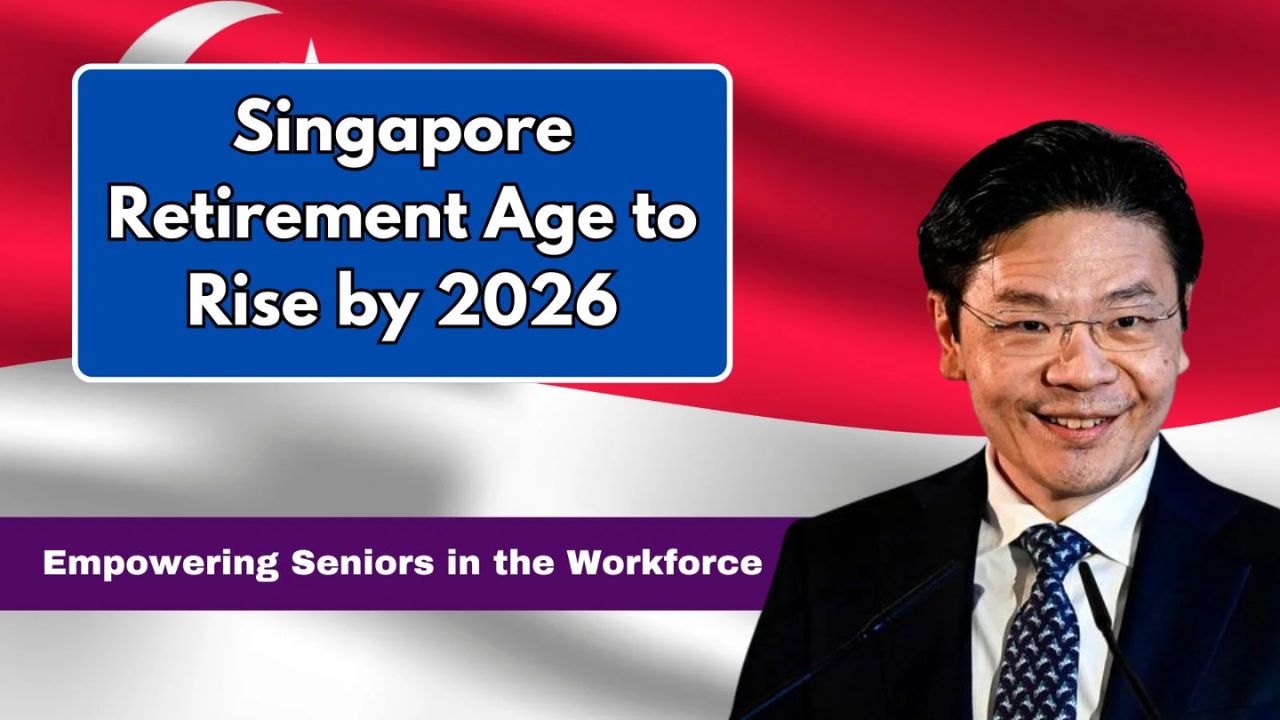Singapore is taking bold steps to address the challenges of an aging workforce while unlocking valuable opportunities for older employees. At the core of this initiative is a forward-thinking strategy that extends the Singapore retirement age, promotes flexible work arrangements, and provides financial incentives for businesses. These efforts reflect a commitment to building a resilient and inclusive economy where the skills and experiences of senior workers are highly valued.
Gradual Increase in Singapore Retirement Age and Re-Employment Age
A major shift in Singapore’s labor policy is the phased increase in the Singapore retirement age and re-employment age. Currently, the official retirement age is 62, and the re-employment age is 65. By 2026, these will rise to 64 and 69 respectively. The long-term goal is to raise the retirement age to 65 and the re-employment age to 70 by 2030.
This move acknowledges longer life expectancies and aims to help older individuals maintain financial independence. Extending the working years gives seniors greater job security, continued income, and a renewed sense of purpose through active participation in the workforce.
Financial Incentives for Employers to Hire and Retain Older Workers
To support this transition, the government is offering financial incentives to businesses that hire or retain older employees. The Senior Employment Credit (SEC) program, now extended through December 2026, provides wage offsets to employers who hire Singaporeans aged 60 and above earning up to $4,000 monthly. Depending on the employee’s age and salary, the offset can go up to 8%.
These measures are vital in encouraging companies to adapt to the new Singapore retirement age policies while maintaining a competitive edge and supporting older workers in meaningful employment.
Also Read – Discover the 1909-S VDB Lincoln Cent and Other Rare Pennies Worth a Fortune
Enhanced CPF Contributions for Seniors’ Retirement Security
Another essential pillar of Singapore’s labor framework is the CPF Transition Offset. This initiative supports employers who increase their Central Provident Fund (CPF) contributions for employees aged 55 to 70. The government covers 50% of the increased CPF contribution, helping senior workers build stronger retirement savings without overburdening businesses.
This enhancement plays a critical role in strengthening retirement security in line with the rising Singapore retirement age, ensuring that workers can enjoy financial stability during their later years.
Promoting Flexible Work Arrangements for an Aging Workforce
Understanding that older workers may prefer reduced hours or more flexible roles, the government actively supports Flexible Work Arrangements (FWAs). These arrangements help senior employees continue working while balancing their health, personal life, and other commitments.
To promote part-time opportunities, the Part-Time Re-Employment Grant (PTRG) has been extended until 2025. It offers up to S$125,000 in financial support to employers who provide part-time re-employment for seniors. This not only supports companies but also helps older workers stay engaged in the labor force under the updated Singapore retirement age framework.
Additionally, initiatives like Structured Career Planning (SCP) help older employees transition to roles that align with their changing abilities, ensuring they remain valuable contributors to the workplace.
A Collaborative Approach: Tripartite Workgroup on Senior Employment
To keep employment policies relevant, the Ministry of Manpower established the Tripartite Workgroup on Senior Employment. This group brings together government agencies, employer associations, and labor unions to evaluate current practices and recommend improvements aligned with the evolving job market.
This collaborative approach ensures that as the Singapore retirement age increases, policies remain fair, inclusive, and supportive of both businesses and senior employees.
Why Increasing the Singapore Retirement Age Matters
Singapore’s proactive stance on raising the retirement and re-employment ages brings several long-term benefits:
- Greater Financial Security: Seniors can extend their earning years, reducing reliance on savings or social aid.
- Valuable Workforce Experience: Older workers provide mentorship and expertise, boosting workplace productivity.
- Business Efficiency: Retaining seasoned employees reduces hiring and training costs.
- Inclusive Work Environment: Flexible arrangements help create a diverse and harmonious workforce.
- Stronger Economy: A larger active workforce contributes to national growth and a stable tax base.
Conclusion: A Sustainable Future for Singapore’s Senior Workforce
The evolving Singapore retirement age policy reflects a national commitment to empowering seniors and creating an age-inclusive labor market. Through phased retirement changes, employer incentives, CPF enhancements, and flexible work options, Singapore is setting a global benchmark in managing aging demographics.
As these reforms take root, Singapore proves that age is not a limitation—but a strength. The future of its workforce will be one where experience, dedication, and resilience are embraced, ensuring lasting economic vitality and social harmony.

